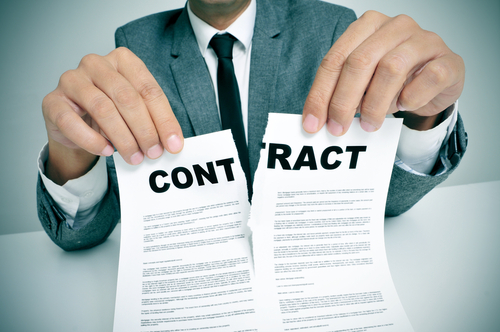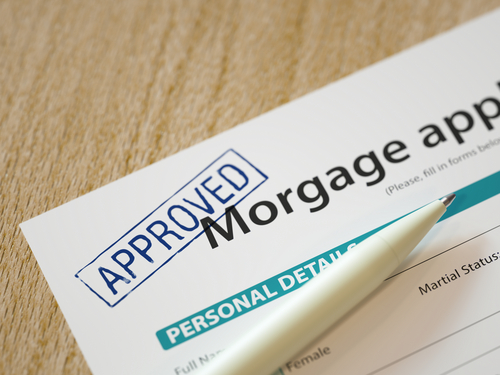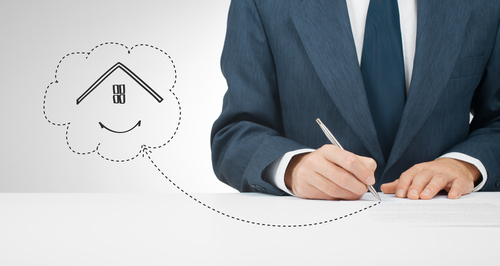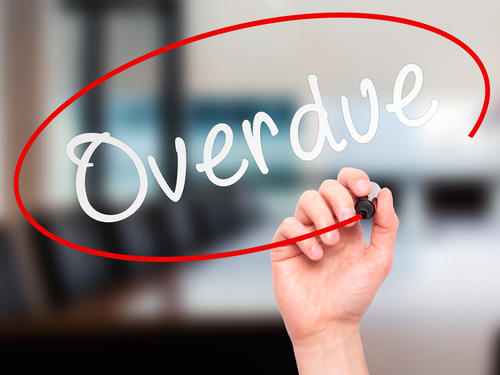
FHA home loans, which are insured by the Federal Housing Administration, are an alternative to conventional financing and an attractive option for first-time home buyers, although anyone can apply. These loans are sometimes easier to get than conventional loans, but this doesn't mean everyone who applies for an FHA loan is approved for financing. Like any mortgage loan, there are minimum requirements, and your FHA loan may be rejected if you don’t fit the criteria. 1.You have a credit score below 620 One advantage of an FHA home loan is that the program only requires a minimum credit score between 500 and 580. This opens the door to homeownership if you’ve had credit problems in the past. But while it is possible to get an FHA loan with a credit score as low as 500, mortgage lenders that offer FHA products can set their own minimum credit score standard, and some lenders don’t approve applicants with scores lower than 620, regardless of a particular program’s minimum requirement. The upside is that while one lender might reject your FHA home loan… Read more

Most of us have experienced buyer’s remorse. Fortunately, when you purchase an item from a store, you can change your mind and return the item within 30 to 90 days for a refund or exchange. You might not associate a return policy with a mortgage, but if you refinance a home loan, you may have the right of rescission, which means you can cancel the loan after signing the documents. What is the Purpose of a Mortgage Refinance Mortgage refinancing is a common real estate transaction and involves applying for a new mortgage to replace an old mortgage. You can refinance to take advantage of a lower interest rate, convert an adjustable-rate mortgage to a fixed-rate, or you can refinance and remove someone's name from a mortgage loan. Whatever the reason, you’ll need to complete a new home loan application and wait until the lender reviews your income, credit and supporting documentation. The Right of Rescission It can take up to 30 to 45 days to close on a mortgage refinance, and during this time, you can cancel the loan… Read more

Getting a mortgage can be intimidating, but you don’t have to go through the process alone. You’ll work closely with your loan officer who can answer your questions and explain each step. But although you’ll have the guidance of a loan officer, it’s important to conduct your own research before you meet with a lender. Even if you don’t have immediate plans to purchase a home, it’s never too early to prepare for the buying experience. There’s a lot you may not know about mortgages. However, the more you know, the less surprises you’ll have during the application stage. Here are five things you don’t (but should) know about getting a mortgage. Lenders use the lowest of your three credit scores You may already know that you have three credit scores, and you probably know that the lender will pull all three of your credit reports. What you may not know, however, is that many mortgage lenders use the lowest of your three credit scores to determine your interest rate. This isn't a problem when all three of your credit… Read more

You’ll work closely with your loan officer after applying for a mortgage. This person can take your information for the application, review the Loan Estimate with you, and answer your questions. But your loan officer isn’t the decision maker—the underwriter is. The underwriter is the unseen person in the application process, and it’s this person’s job to review your application and decide whether you’re a good candidate for a mortgage loan. The underwriting process isn't a simple or quick process completed in 20 minutes. It’s a much more complex stage than some people realize. But if you understand how underwriting works, you'll know what to expect from the lending process. Getting Your Loan Estimate The first step to getting a mortgage is getting a Loan Estimate from your loan officer. This is a new form that replaced the Good Faith Estimate and the Truth-In-Lending Disclosure. This three-page document provides information about your loan amount, the interest rate, your projected monthly payment, plus there’s an estimate of how much cash you’ll need at closing. With the estimate, you know what to… Read more

A mortgage is considered good debt, and having a mortgage on your credit report is a sign of financial stability. However, a mortgage only contributes to your financial health when you manage it responsibly. This includes borrowing what you can afford and making your payments on time. But even if you have every intention of being responsible with a home loan, you might submit a late payment. Whether you accidentally forget about your mortgage, or you pay late due to financial hardship, a late mortgage payment has repercussions. Here is what you can expect from a late payment. Your Lender May Charge a Late Fee Mortgage payments are due on the first of every month with a 15-day grace period. If you don't pay your mortgage within the grace period, you’ll be charged a late fee. The late fee can be as much as $40-$50, depending on the lender. A late fee adds to your mortgage expense because you’re required to pay the late fee along with your monthly payment. But although a late fee is a financial blow, missing… Read more







